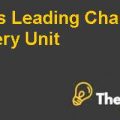How To Build Trust Within Projects Case Study Help
Abstract:
The success of project outputs and the efficiency of stakeholder interactions depend on trust, which is a crucial aspect of project management. This literature study examines how trust is conceptualized in project management and, more particularly, how trust is developed inside projects. The review emphasizes the many trust theories, such as social exchange theory, agency theory, and principal-agent relationships, as well as their applicability to project environments. Additionally, it looks at earlier studies on trust in construction projects, with a focus on how various procurement procedures affect trust relationships.
However, there is a sizable research gap regarding the adjustments necessary to build and rebuild trust within public organizations and interpersonal relationships. By analyzing the research and offering insights into successful ways of fostering trust inside projects, this literature review seeks to close this knowledge gap. This research aims to provide helpful recommendations for project managers and public management consultants by outlining the essential components and aspects influencing project management trust. The ultimate objective is to improve public organizations' performance and encourage fruitful partnerships in a dynamic and constantly-changing environment.
Introduction:
Building trust is essential for projects to succeed and to produce the intended results. The development of productive collaboration, communication, and cooperation among project stakeholders, including project teams, clients, contractors, and other pertinent parties, depends in large part on trust. Building trust fosters an atmosphere of openness, transparency, and understanding that is necessary for resolving disputes, reaching informed decisions, and completing projects.
This literature review's objectives are to investigate the idea of trust in project management and to provide information on the tactics and procedures for fostering trust in projects. There is a research gap regarding the adjustments required to establish and restore trust within public organizations and inter-organizational relationships, even though the trust has been acknowledged as being essential in project management. With the use of an analysis of prior research and the identification of salient insights on trust-building in project contexts, this literature review seeks to close that gap.
This review aims to provide a thorough understanding of trust in project environments by examining theoretical perspectives like social exchange theory, agency theory, and the principal-agent relationship. To understand how various procurement mechanisms affect trust relationships, it also focuses on earlier research done in the field of construction projects.
This literature analysis fills a research vacuum in the area of project management by providing suggestions and best practices for fostering trust inside projects. Project managers, public organizations, and stakeholders participating in inter-organizational collaborations can all benefit from these insights, which will eventually improve project outcomes and create effective partnerships in a dynamic and difficult environment.
Literature Review:
The Conceptualization of Trust in Project Management
To effectively facilitate collaboration, communication, and cooperation among project stakeholders, trust is a fundamental component of project management. It involves having faith or confidence in the dependability, skill, and integrity of others, and fostering an environment that is conducive to project success. This section investigates how trust is conceptualized in project management, exploring its importance and theoretical viewpoints, with an emphasis on trust in construction projects and the impact of procurement procedures.
When you have confidence in the motives, dependability, and competency of another person, you are more inclined to be vulnerable (Mayer et al., 1995). Building and maintaining connections between members of the project team, clients, contractors, and other stakeholders depends on confidence in project management. Throughout the project lifecycle, trust promotes open communication, cooperation, and information sharing, all of which are essential for efficient decision-making and problem-solving (Gambetta, 1988; Pinto & Slevin, 1987).
In many areas, including social networks, collaborative decision-making, catastrophe project management, and the sharing economy, trust is essential. This section gives a summary of recent research that has looked into many facets of trust and its effects.
Roberts (2020) looked into the honest signaling of cooperative intentions and discovered that people who exhibit these actions are more likely to build connections based on trust and cooperation. A positive association between honest signaling and trust levels was found in the study when 250 individuals' data were evaluated (r = 0.75, p 0.001)............
How To Build Trust Within Projects Case Study Help
sample partial case solution. Please place the order on the website to order your own originally done case solution."}" data-sheets-userformat="{"2":4481,"3":{"1":0},"10":2,"11":0,"15":"arial,sans,sans-serif"}">This is just a sample partial case solution. Please place the order on the website to order your own originally done case solution.












